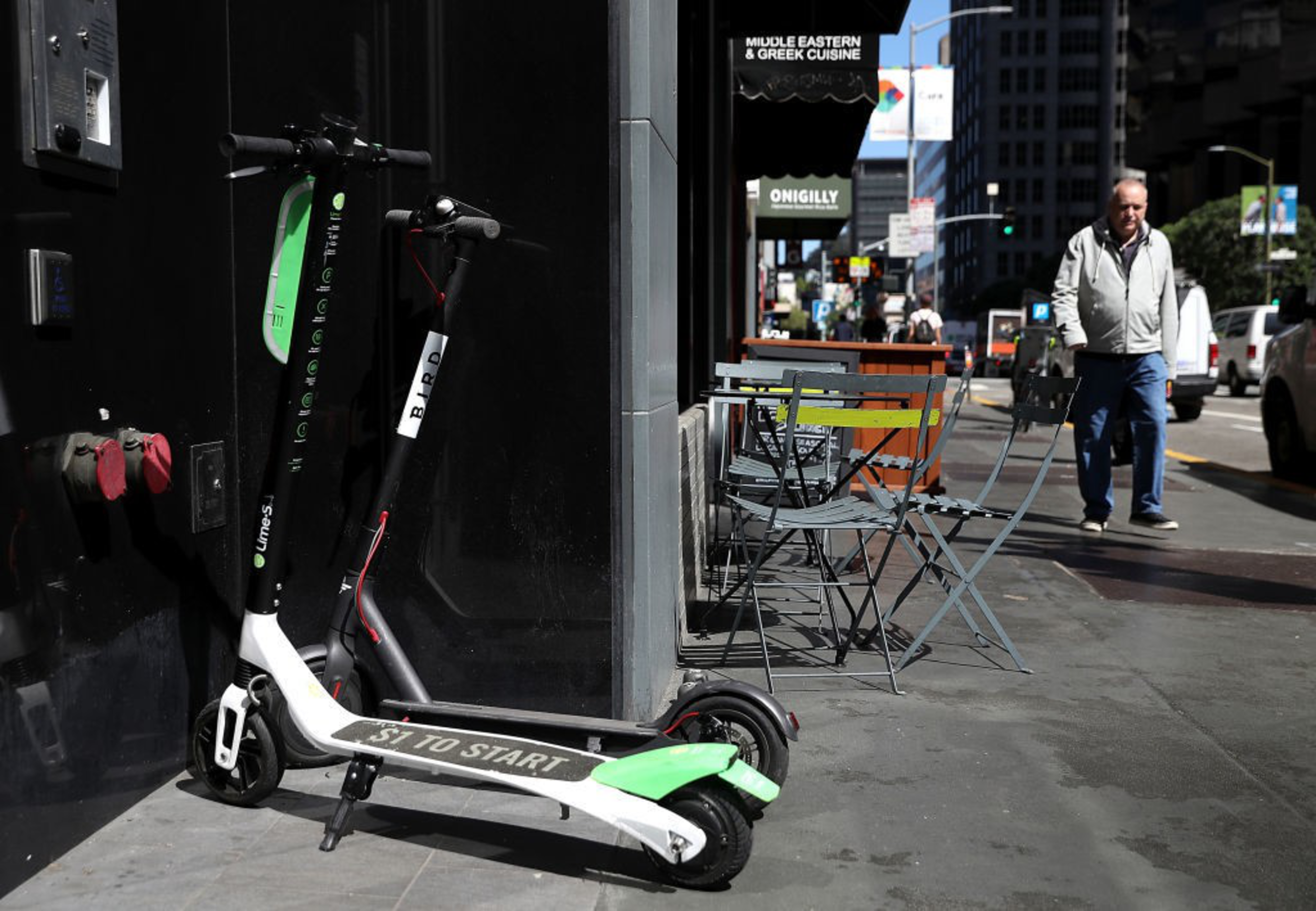Fatal electric scooter incidents and injuries have shot up in San Francisco since the pandemic started in 2020, according to recently published data from the city.
According to the San Francisco Municipal Transportation Agency (SFMTA), which unveiled the statistics through its Vision Zero initiative earlier this week, scooter injuries jumped from 145 between 2017 and 2019 to 454 from 2020 to 2022—a 213% increase.
Deaths involving scooters went from zero between 2017 and 2019 to seven between 2020 and 2022, meaning all such fatalities were recorded since 2020, according to the SFMTA.
Data collected by Vision Zero includes both privately owned and ride-share scooters.
These findings coincide with recent accounts of dangerous scooter incidents (opens in new tab), including a scooter-bicyclist collision on Wednesday and a July 8 scooter crash that resulted in a pedestrian death. Both happened on Market Street in Downtown San Francisco.
The victim in the July 8 accident was named Frans Alst, a Dutch citizen from Amsterdam, who stayed in San Francisco for his work as a KLM Royal Dutch Airlines flight attendant, a spokesperson for the airline confirmed.
The uptick in the number of scooter-involved accidents occurred as ridership increased during the pandemic, according to a spokesperson for Lime, who said that the company recorded fewer than 135,000 rides before 2020, and almost 2.4 million rides since then. Lime said its operations in San Francisco are “overwhelmingly safe” and that for 99.98% of Lime rides taken, the users did not report a safety incident.
SFMTA spokesperson Stephen Chun said the agency was “exploring the idea of a free scooter training and education program that includes demonstration of safe and proper riding techniques, instructions on how to navigate the public roadway and training riders to feel confident on the road,”
The program would target all ages, abilities and experience, including those who privately own electric scooters, Chun said.
The Vision Zero program was started by the city in 2014 with the aim to end all traffic deaths and serious injuries by 2024. After achieving moderate success in its first few years, the number of fatal crashes has now risen above 2014 levels.
The program acknowledged the zero-death goal was ambitious, and that 10 years was not enough time to “fix deep [the] societal issues” that can lead to traffic accidents, such as road rage and distracted driving.

Electric scooter safety has been a point of contention among local politicians, scooter companies and the city transit agency. City officials have introduced regulations to prohibit sidewalk riding and illegal parking, and have required scooter companies to obtain permits to operate in San Francisco.
SF Supervisor Aaron Peskin, who has championed scooter safety, told The Standard that the SFMTA should enforce its safety policies more stringently, and that scooter companies should do more to prohibit unsafe ridership.
“The SFMTA must make sure permits are only given to companies that fully implement anti-sidewalk riding technology,” he added.
Scooter operator Bird pulled its devices out of the city in February, asserting that the company could not “justify the fine expenses and technological investment” required to keep up with local regulations.
Despite a decrease in commuter traffic, fatal crashes in San Francisco have increased by 33% since 2020. Of this increase in deaths, 92% of these fatalities involved motorcycles and scooters, according to SFMTA data.
The Standard tried to talk with several scooter riders, but none stopped to chat.
Editor’s note: This story has been updated to clarify that data collected by Vision Zero includes both privately owned and ride-share scooters.
